Search
Search Results
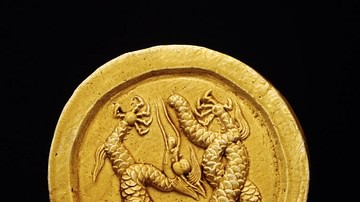
Image
Chinese Dragon Roof Tile
A glazed ceramic roof tile depicting a dragon. Nanjing, Ming dynasty, 1366-1400.
The British Museum, London.

Image
Chinese Terracotta Warrior
A portion of the Terracotta Army, the clay life-size army in the tomb of the Qin emperor Shi Huangdi. c. 210 BCE, Shaanxi Province, China.
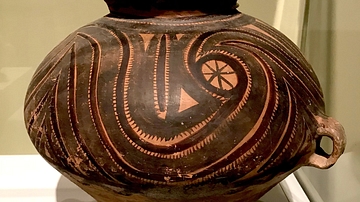
Image
Neolithic Chinese Jar
This jar dates from the 26th century BCE and is made of earthenware with pigments. It was made by the Majiayao Yangshao culture during the Banshan phase (c. 2655-2330 BCE). (Iris & B. Gerald Cantor Center for Visual Arts at Stanford University...
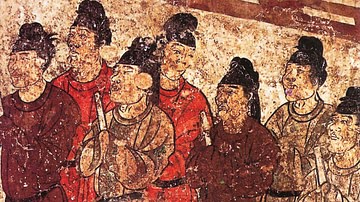
Image
Chinese Eunuchs
A mural depicting a group of eunuchs, the slaves and influential advisors of many Chinese emperors. Mural from the tomb of the prince Zhanghuai, 706 CE, Qianling, Shaanxi, China.
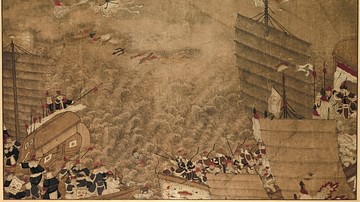
Image
Wako & Chinese Naval Battle
An 18th century CE illustration showing a naval battle between Japanese pirates (wako) and Chinese naval ships. (Rijksmuseum, Amsterdam)
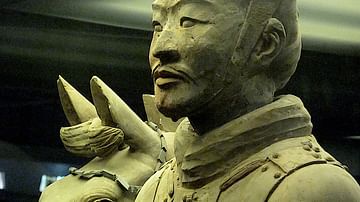
Image
Chinese Warrior
A detail of a Chinese warrior from the Terracotta Army buried near the tomb of Qin emperor Shi Huangdi, c. 210 CE. Shaanxi Province, China.
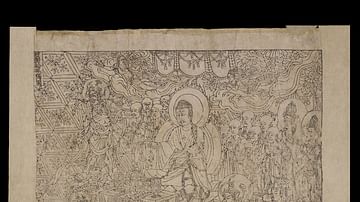
Image
Chinese Diamond Sutra
The Buddhist text known as the Diamond Sutra is believed to be the oldest surviving printed book in the world, dated to 868 CE and written in Chinese. This work is one of the most important works of the Buddhist tradition.
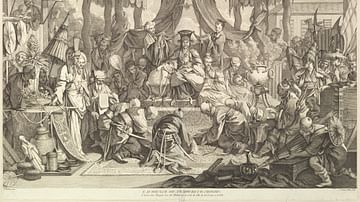
Image
An Audience with a Chinese Emperor
An 18th century CE engraving by Jacques Gabriel Huquier illustrating an audience with a Chinese emperor. (The Metropolitan Museum of Art, New York)

Image
Chinese Jade mask
A Chinese miniature jade mask. 2nd millennium BCE. Height: 4 cm. (British Museum, London)

Image
1804 Chinese Junk
An 1804 print of a Chinese junk ship. The junk was capable of operating in shallow waters or on ocean voyages and was a mainstay of merchant and pirate shipping in Asia for centuries.